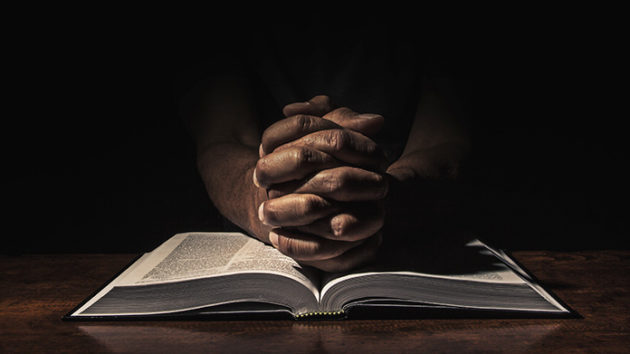A Lessen of Liberty in North Korea
The worst part of the State Department’s new report on international religious freedom isn’t the stories it tells, but the ones it doesn’t.
In some of the darkest corners of the world, a lot of people aren’t even captured in the statistics. They just vanish — victims of a brutal war that’s been waging for centuries on faith.The West has seen flashes of the cruelty in places like North Korea, where the simple act of bowing your head could be all the evidence the government needs to ship you to prison camp. There, refugees warn, you’ll be beaten — sometimes to death — or die from something as simple as diarrhea because there’s no access to medicine. It’s a country where Christians trust no one. Kim Jong Un’s spies are everywhere, trained to “uncover religious people.” Even a secret prayer meeting could be a trap, organized by state officials to catch believers. Some Chinese pastors are even recruited and paid to turn in North Korean believers.
The ones who are caught talk about the torture, the brainwashing, and executions. “The government continued to deal harshly with those who engaged in almost any religious practices,” the State Department report read. “An estimated 80,000 to 120,000 political prisoners, some imprisoned for religious reasons, were believed to be held in the political prison camp system in remote areas under horrific conditions.” Children grow up never knowing their parents were believers, a fact that’s hidden from thousands of young people for their own protection.
Christians like Han-me flee to China, only to be captured and sent back with a virtual death sentence. “Some defectors [on the train] had been arrested before,” she says. “They told me: ‘When you’re interrogated, there are two questions you should never answer ‘yes’ to. The first one is: Have you been in touch with Christians? The second one is: Have you read in the Bible?’ It turned out to be true. In prison, the interrogators tied me to a chair and beat me with chains and a wooden stick wrapped up in a newspaper. They pressed me to confess I had been in contact with Christians. I told them I hadn’t met any Christians while in China. It was a lie, but I wanted to survive. It was all I could think of.”
Higher profile Christians are the targets of assassination. After one Christian, who was heavily involved in an underground railroad for refugees, was murdered, South Korean intelligence officials stepped up their surveillance of people crossing the border. They called one local man and warned him not to meet up with a North Korean acquaintance. “This man will attempt to murder him, they say. Not much later at a train platform, South Korean police arrest the North Korean agent carrying needles and poison.”
Over the last seven years, the crackdown has only gotten worse. When Kim Jong Un succeeded his father in 2011, the already-brutal regime became the stuff of real-life horror. More house raids, more spies, more killings. “Every Christian in my country has the spirit of martyrdom in him,” said the friend of one detainee. “If you lose that spirit for one second, you cannot carry the burden of being a follower of Jesus.”
Unfortunately, this is the grim backdrop U.S. officials face in their high-stakes negotiations with North Korea.”Religious freedom is in the American bloodstream,” Secretary Mike Pompeo told reporters yesterday during the flurry of behind-the-scenes work to salvage talks with Kim Jong Un. “The release of the report is critical to our mission to defend religious liberty, and brings to light the state of religious freedom all over the world.”
From more allied countries like Saudi Arabia to known enemies in Iran and Nigeria, the report outlines the tall — but not impossible — task of Pompeo and U.S. Ambassador at Large for Religious Freedom Sam Brownback. In hot spots like Myanmar, the attacks seem to be growing right along with worldwide outrage. Extremists are burning, raping, and killing their way through the Rohingya Muslim population with a ferocity world leaders are desperately trying to stop. In a dramatic turn from the Obama years, Trump’s State Department was quick to label the campaign “ethnic cleansing.”
“It’s extraordinarily significant when the United States formally designates something as ethnic cleansing,” said an advocacy director for Human Rights Watch. “Ethnic cleansing is a crime against humanity.” Almost a quarter million Rohingya have already fled to Bangladesh, the report points out, where the situation is just as dire. Mudslides continue to wipe away makeshift shelters, stripping families of whatever peace of mind they had leaving the turmoil at home.
Fortunately for the Rohingya — and every persecuted faith group — they have an ally in this White House. “Our goal is to protect the freedom of conscience for all people. That means protecting a Muslim, Buddhist, Falun Gong practitioner or Christian in China and their ability to pray and live out their life,” Ambassador Brownback said. His partner in the effort, Secretary Pompeo, told reporters what most Americans already know: “Religious freedom is, indeed, a universal human right that I will fight for.” The world has made important strides, he went on, “but we still have a lot of work to do.” Thanks to this report, they know exactly where to start.
Tony Perkins’ Washington Update is written with the aid of FRC senior writers.
RELATED ARTICLE: We’ll See You… in September!



Leave a Reply
Want to join the discussion?Feel free to contribute!